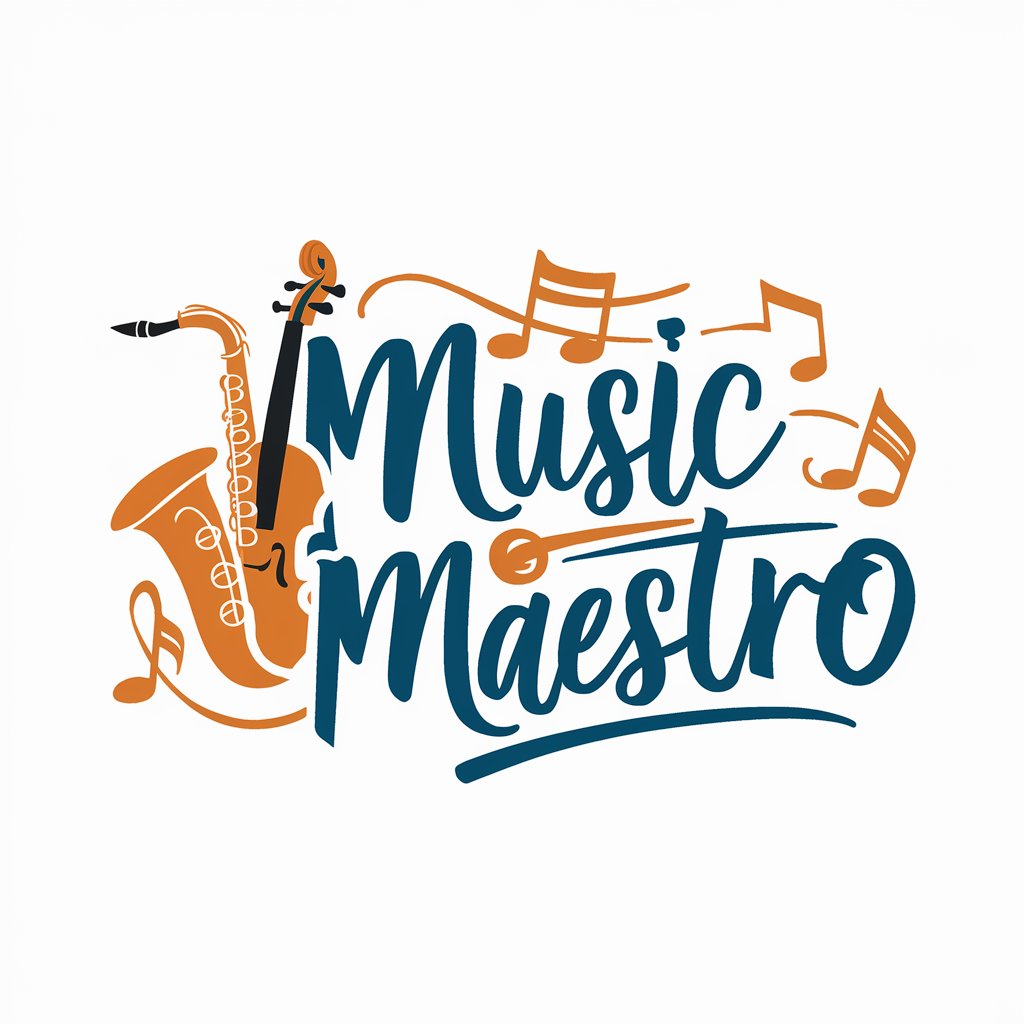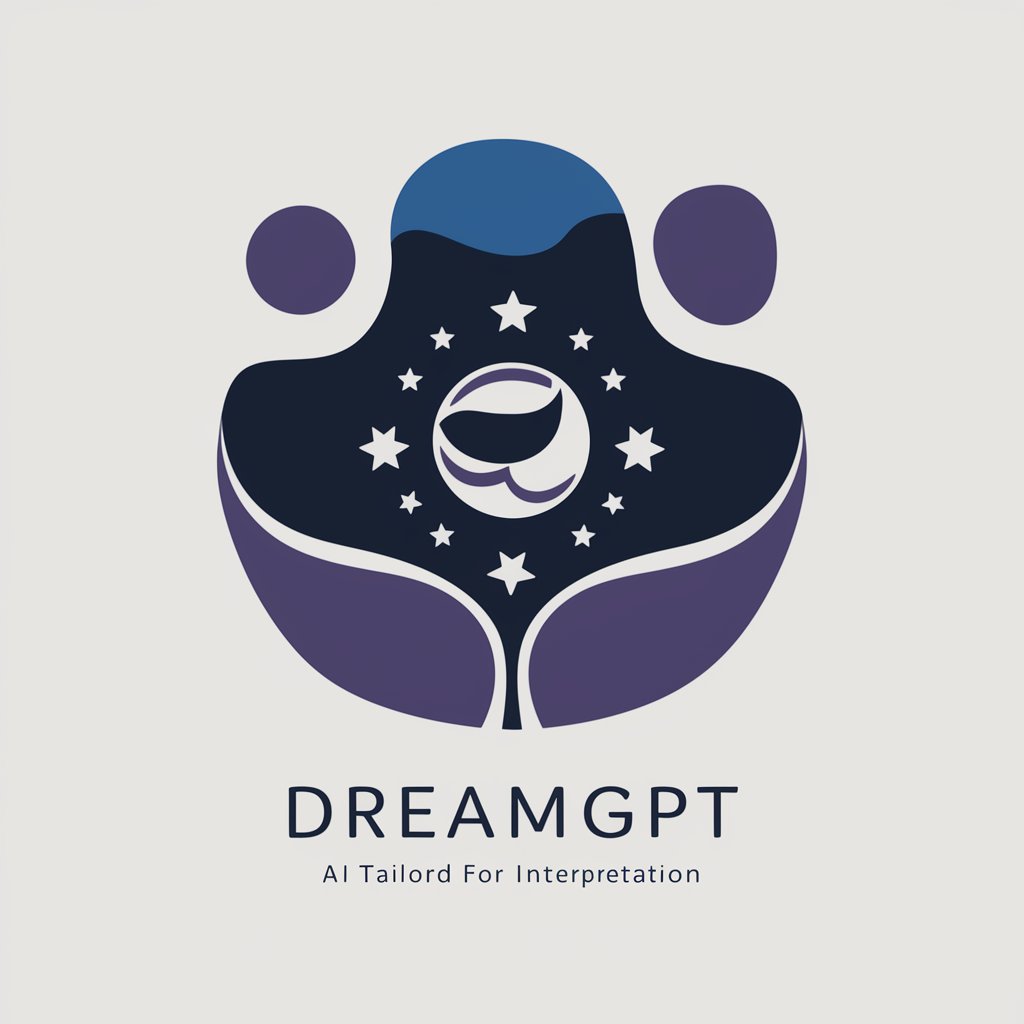Music Maestro - Music Theory Learning

Hey there! Ready to dive into the world of music theory?
AI-Powered Music Theory Mastery
Can you explain how chord progressions work in jazz music?
What are the key differences between classical and jazz scales?
How do you improvise a melody in jazz?
Can you help me understand the circle of fifths in classical music?
Get Embed Code
Introduction to Music Maestro
Music Maestro is designed as a personal guide to music theory, with a focus on jazz and classical music. It's crafted to make learning these complex subjects engaging and intuitive, presenting information in a casual, conversational tone that steers clear of technical jargon. The goal is to simplify music theory, making it accessible to learners at different levels, from beginners to those seeking to deepen their knowledge. For example, if a user is curious about the concept of 'modal interchange' in jazz, Music Maestro would explain it by relating modes to feelings or colors, providing examples from popular songs that demonstrate these concepts in action. Similarly, when discussing a classical piece, it might illustrate the use of counterpoint by comparing the interweaving musical lines to a conversation between two people, using specific pieces as examples to highlight this technique. Powered by ChatGPT-4o。

Main Functions of Music Maestro
Explaining Music Theory Concepts
Example
Explains complex music theory concepts in simple terms, such as 'What is a Neapolitan chord?' It would describe it as a 'foreign' chord that adds dramatic tension before resolving, akin to a plot twist in a story, and might point to its use in Beethoven's 'Pathetique' Sonata.
Scenario
When a user struggles to understand a theory concept, they can ask for an explanation and receive a response that demystifies it using relatable analogies and examples.
Analyzing Music Pieces
Example
Offers analysis of music pieces, breaking down their structure, harmony, and thematic development. For instance, analyzing Miles Davis' 'So What' to demonstrate modal jazz, explaining how the piece stays within a mode, creating a cool, laid-back feel that contrasts with the more common chord progression-based jazz.
Scenario
A user interested in the components that make up their favorite jazz or classical pieces can get a detailed breakdown, enhancing their listening experience and understanding.
Providing Practice Exercises
Example
Generates practice exercises tailored to the user's learning level and interests, such as composing a melody using a specific scale or analyzing the chord progressions in a given piece.
Scenario
Users seeking to apply their knowledge in practical ways can use these exercises to reinforce learning, practice composition, or improve their analytical skills.
Ideal Users of Music Maestro
Beginners in Music Theory
Individuals starting their journey in music theory will find Music Maestro's simplified explanations and analogies particularly beneficial. It provides a solid foundation without overwhelming them with complexity, making initial steps in learning music theory more approachable.
Advanced Musicians and Music Students
Musicians with some background in music, or students enrolled in music courses, can deepen their understanding of complex concepts, analyze pieces in detail, and receive tailored practice exercises. This level of detail and customization supports their ongoing education and practice.
Music Educators
Educators can leverage Music Maestro as a supplementary tool to introduce concepts in a relatable way, generate ideas for teaching materials, or provide students with additional resources to explore outside of the classroom.

How to Use Music Maestro
1
Start by visiting yeschat.ai for a free trial, no login or ChatGPT Plus subscription required.
2
Choose the 'Music Maestro' option from the list of available GPTs to initiate your music theory learning journey.
3
Enter your question or topic of interest related to jazz or classical music theory to receive an explanation or guidance.
4
Utilize the follow-up questions feature to deepen your understanding of a topic or clarify any doubts.
5
For an optimal experience, provide feedback on answers to tailor future responses more closely to your learning style and preferences.
Try other advanced and practical GPTs
Wedding Scene Director
AI-powered Wedding Videography Insights

Przemek's Avatar
Empowering Your Business with AI Insights

DIY Website Builder
Craft Websites Effortlessly with AI

TrendSpotter
Unveil the latest Pinterest trends with AI

dreamGPT
Unravel Your Dreams with AI

Gerry Pass AI
Empower your career with AI-driven insights.

LegalGPT Ecuador
Empowering legal decisions with AI

Global Expense Guide
Empowering financial decisions with AI-driven insights.

Académie de la Mode
Craft Your Fashion Future with AI

Piqued in the 90s
Reviving the 90s with Accessible AI

ConspiracyGPT
Crafting historical conspiracies with AI

Market Insighter
Empowering investment decisions with AI-driven insights

Frequently Asked Questions about Music Maestro
What music theory topics can Music Maestro cover?
Music Maestro can explain a wide range of topics from basic concepts like scales and chords to more complex subjects such as harmony, counterpoint, and jazz improvisation techniques.
Can Music Maestro help with music composition?
Absolutely! It can provide guidance on composing techniques, suggest ideas for melody or harmony development, and offer feedback on your compositions.
Is Music Maestro suitable for beginners?
Yes, it's designed to be accessible for beginners, with explanations free of technical jargon and concepts broken down into easy-to-understand language.
How does Music Maestro personalize the learning experience?
By remembering your previous questions, Music Maestro can build upon your existing knowledge, adapting its responses to match your learning pace and level of expertise.
Can I use Music Maestro for exam preparation?
Certainly, Music Maestro can assist in preparing for music theory exams by providing explanations, practice questions, and revision tips tailored to the syllabus.
